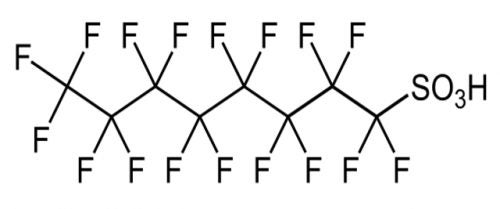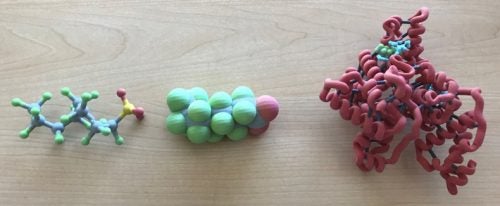Per- and polyfluoroalkyl substances (PFASs) are used to make surfaces water and oil resistant and can be found in cookware and fabric, as well as firefighting foam. They are ubiquitous and are contaminating water supplies near manufacturing plants and fire training sites. PFASs are present in blood serum of 99% of human population worldwide. To make matters worse, there are almost 5,000 PFASs in the environment. US EPA has recently declared PFASs as a national priority. PFASs have been found epidemiologically to cause cancer and cardiovascular risk, thyroid disease, and immune system disorders, but their mode of actions is not understood. We hypothesize that PFASs may occupy important pockets of certain essential enzymes and receptors disrupting their regular functions. These chemicals can have long lasting adverse effects because of their unusually long half lives (years). To this end, we will use a powerful combination of microcalorimetry (ITC and DSC) and real time binding measurements such as surface plasmon resonance (SPR) to study systematically their specific interactions with human serum albumin protein (HAS) and transthyretin. We will collaborate with the project leaders involved in the URI/Harvard joint STEEP Superfund Research Program (SRP) (https://web.uri.edu/steep/). Dr. Cho is Training Core leader of the URI/Harvard STEEP Collaboration.
Protein binding of per- and polyfluoroalkyl substances (PFASs) as part of URI/Harvard Superfund STEEP (NIH/NIEHS 3P42ES027706)
Per- and polyfluoroalkyl substances (PFASs) are used to make surfaces water and oil resistant and can be found in cookware and fabric, as well as firefighting foam. They are ubiquitous and are contaminating water supplies near manufacturing plants and fire training sites. PFASs are present in blood serum of 99% of human population worldwide. To make matters worse, there are almost 5,000 PFASs in the environment. US EPA has recently declared PFASs as a national priority. PFASs have been found epidemiologically to cause cancer and cardiovascular risk, thyroid disease, and immune system disorders, but their mode of actions is not understood. We hypothesize that PFASs may occupy important pockets of certain essential enzymes and receptors disrupting their regular functions. These chemicals can have long lasting adverse effects because of their unusually long half lives (years). To this end, we will use a powerful combination of microcalorimetry (ITC and DSC) and real time binding measurements such as surface plasmon resonance (SPR) to study systematically their specific interactions with human serum albumin protein (HAS) and transthyretin. We will collaborate with the project leaders involved in the URI/Harvard joint STEEP Superfund Research Program (SRP) (https://web.uri.edu/steep/). Dr. Cho is Training Core leader of the URI/Harvard STEEP Collaboration.


